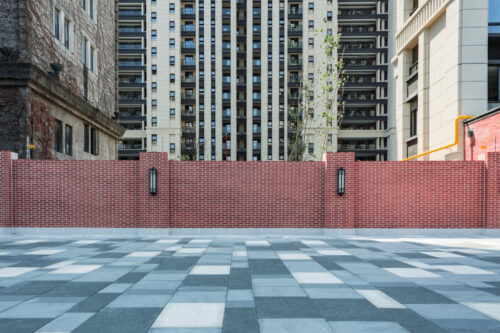What is the best grout for porcelain paving?
Whatever kind of material you are using to create your patio, driveway, pathway or other type of area, grout is essential for a number of reasons - it keeps slabs in place, it helps fill in any irregular bits in the surface, it prevents debris and water getting in between each paver and it keeps weeds from sprouting through the cracks
Paving needs grout
Whatever kind of material you are using to create your patio, driveway, pathway or other type of area, grout is essential for a number of reasons - it keeps slabs in place, it helps fill in any irregular bits in the surface, it prevents debris and water getting in between each paver and it keeps weeds from sprouting through the cracks.
Grout is also used for aesthetic reasons as it also makes your paving look sleeker and more finished.
A word of warning. Grout is not mortar, which is a thick mixture of cement, water and sand, but a thinner mixture, created specifically for the purpose of filling in the spaces between pavers and different materials require it in varying formulations. This is why it is all important to buy your pavers from a reputable company. At Forward Builder’s Supplies, our trusted operatives are always on hand to ensure that you purchase the right materials to match the job.
Importance of selecting the right grout for porcelain paving
Use the wrong grout and you could see your porcelain slabs ruined as a consequence, costing you time and a lot of money which is one reason you need to seek professional advice when looking for the right porcelain paving grout to use for your project.
There are a number of ready-made preparations of grout for porcelain slabs on the market which will do the job well but it’s always a good idea to have an insight into what makes good porcelain slab grout and what is unsuitable.
Understanding porcelain paving and grout compatibility
Porcelain paving is popular for a number of reasons; it is remarkably durable and also non-porous which means it absorbs very little water, therefore it stands to reason that you require a porcelain paving grout that shares the same properties. You don’t want grout that cracks and crumbles after a few years and it should be hardy enough to withstand all the things the weather can throw at it. If you plan on power washing your porcelain paving tiles, then take into account that there are certain types of grout that just won’t be able to cope.
Types of grout suitable for porcelain paving
When it comes to grouting for your porcelain paving project, you have two main options to consider: 'Brush-In Grout' (or 'Epoxy Grout') and 'Slurry Mix Grout' (also known as 'Pre-Mixed Grout'). Here's a brief overview of the benefits of each:
Brush-In Grout (Epoxy Grout)
This type of grout offers exceptional durability and is a top choice for outdoor projects. It is particularly well-suited for porcelain paving due to its resistance to moisture and staining. Epoxy grout can be applied easily by brushing it into the gaps between tiles, ensuring a tight and long-lasting bond. It is worth noting that 'Epoxy Grout' is essentially the same product as 'Brush-In Grout,' offering the same advantages.
Slurry Mix Grout (Pre-Mixed Grout)
Slurry mix grout, also referred to as 'Pre-Mixed Grout,' is another viable option for porcelain paving. This grout is known for its ease of use and quick installation. It consists of a pre-mixed blend of cement and sand, which is applied as a slurry and then wiped clean from the tile surfaces. Slurry mix grout provides a smooth, finished look and helps prevent weeds and debris from infiltrating the gaps between tiles.
Factors to consider when choosing grout
Colour
You can opt for a colour that gives a seamless finish or one in a contrasting colour to make a style statement.
Cost
The cost won’t be a major factor if you are only covering a small area with porcelain pavers but you may want to opt for a cheaper kind of porcelain slab grout for a larger project.
Can you do it yourself?
The one thing you don’t need as an amateur is to be mixing up grout so consider just how easy it is to apply before you choose your porcelain paving grout.
Best practices for grouting porcelain paving
- Get expert advice.
- Follow the instructions issued by the manufacturer.
- Leave gaps of about 5mm between each slab to be filled with your porcelain slab grout.
- Split the job up so you are working in smaller sections, and it won’t feel so daunting.
- Once finished do not walk on the pavers for 24 hours.
Maintenance and repairs
Once you have grouted your porcelain pavers with the correct kind of grout you can expect it to last 10 years or more. If it’s a heavy traffic area which needs regular jet washing, then choose a grout that can withstand this. You’ll need to brush away leaves and debris but both pavers and grout can be maintained easily with soapy water.
Choose the Right Grout for Your Porcelain Paving with Confidence!
Selecting the ideal grout for your porcelain paving is essential for a lasting and beautiful result. At Forward Builder’s Supplies, our experts are here to assist you. Contact us today via our website's contact form or give us a call to ensure a flawless finish.










The information below is required for social login
Login
Register
Fill in the form below to create your new account